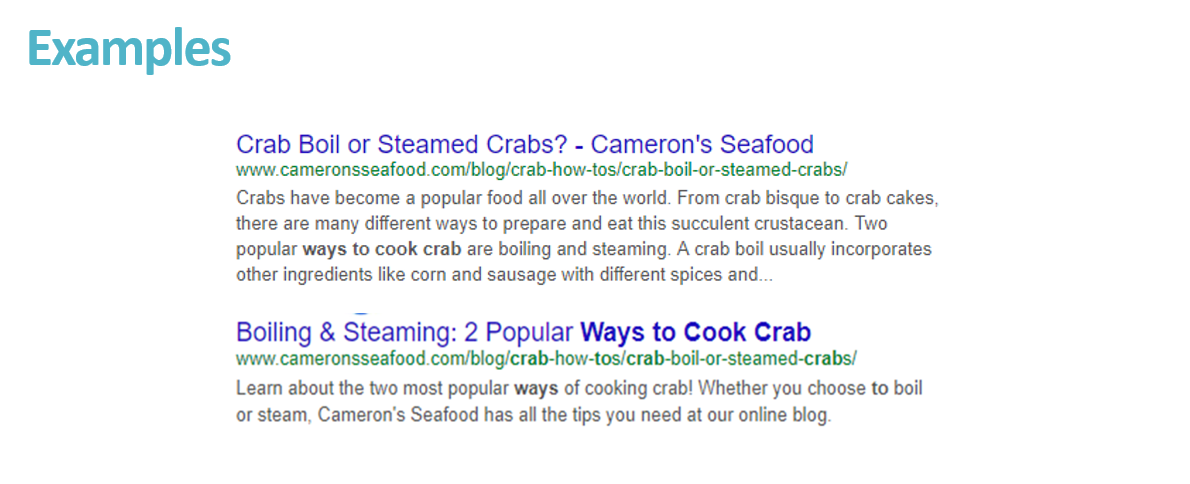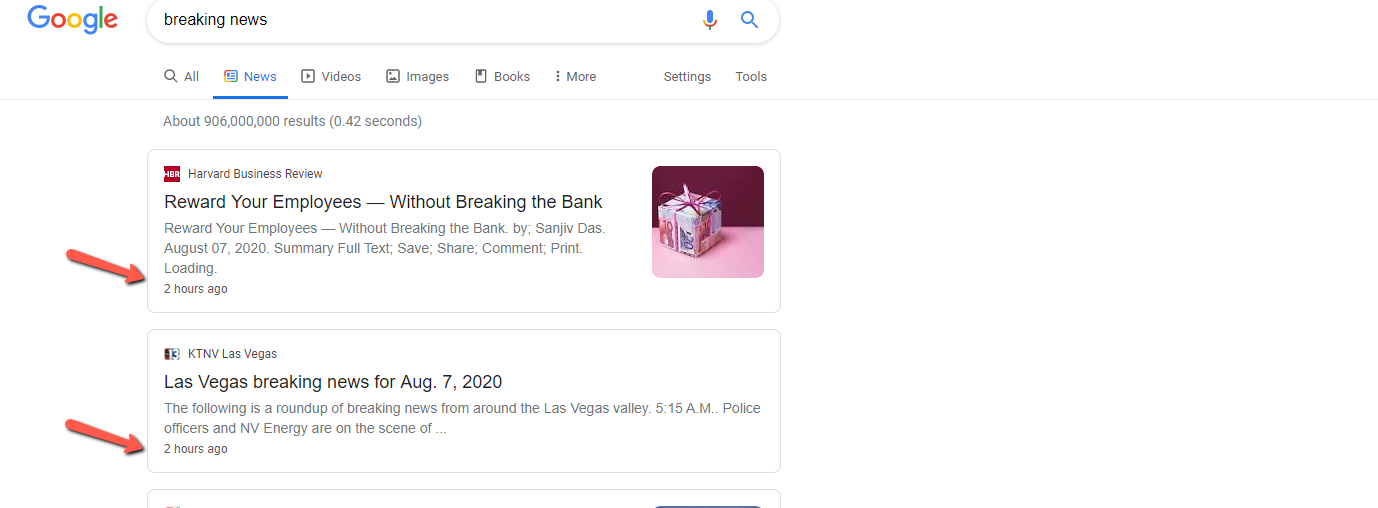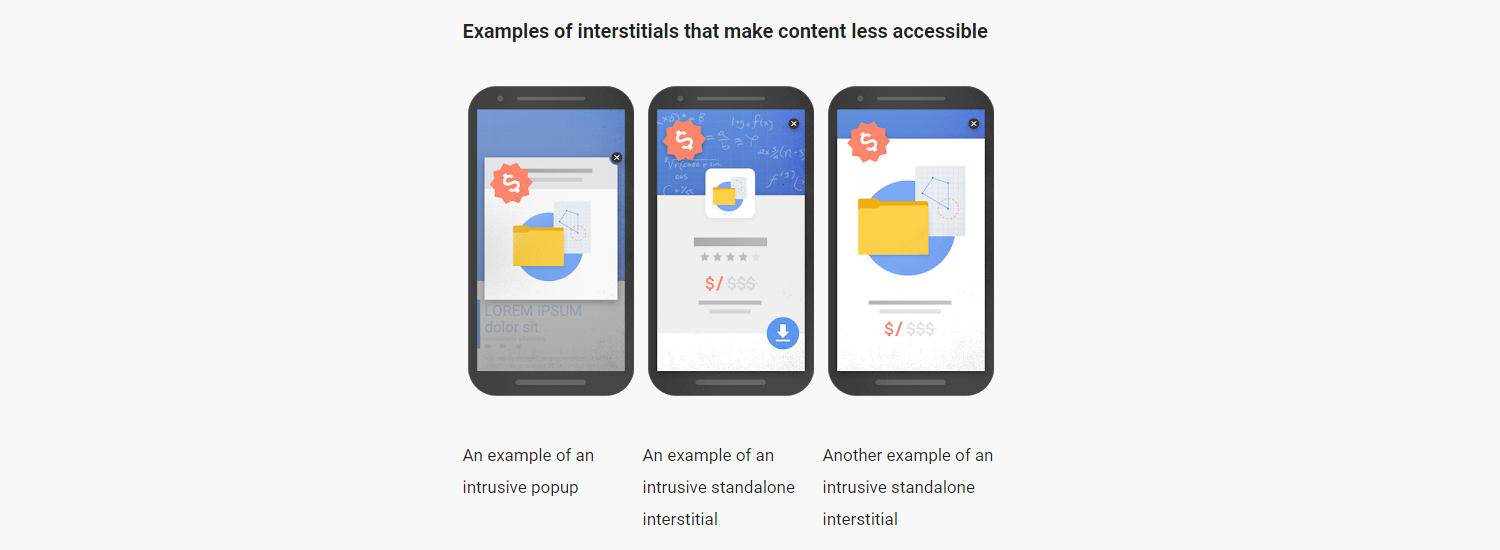What is YMYL? SEO for YMYL Websites and Google
The concept of YMYL comes from updates that Google made to its search quality evaluator guidelines a couple years ago. And ever since it’s been a source of consternation for marketers and SEOs.
So what is YMYL? How does YMYL on Google work and what makes a page or website YMYL?
Well first of all, YMYL stands for “your money or your life.” So let’s get that out of the way. As the name implies it’s meant to refer to pages or sites where some sort of monetary transaction is expected to take place. But there’s more to it than just that. It can also apply to a wide range of sites that involve products, services, concepts or practices for health that could impact the wellbeing of visitors.
Google’s guidelines on YMYL sites has been around for a long time too.
Their search quality evaluator guidelines don’t actually describe their ranking algorithm and in fact are actually just for Google employees to try and objectively judge websites as humans (basically to tell Google how well its algorithm is performing). But a lot of marketers and SEO specialists look to them for clues about what good qualities Google might be thinking about, and for clues about what the algorithm might be sniffing for.
In September 2019, Google rolled out an update to its algorithm that ended up shaking-up rankings for a ton of sites, particularly sites with a focus on health, medicine, and healthcare. It earned the unofficial name of the “medic update” and caused many websites to think about best practices for YMYL site SEO. It also proved that providing high-quality, reliable content in search results was one of Google’s main goals. Google wants to ensure that searchers aren’t getting fooled by content that could negatively impact their wellbeing or give them bad advice.
This meant that YMYL site sites and pages needed to provide high-quality content that could give them better YMYL SEO rankings.
What is YMYL? And what is a YMYL site?
So it’s basically this. Google describes YMYL sites/pages as ones that could potentially impact a person’s happiness, health, financial stability, or safety. It describes sites with topics that could impact the quality, health, and financial wellbeing of readers.
This doesn’t just mean medically focused sites, nor does it just mean pages where an actual purchase is made, like on an eCommerce site. Google defines YMYL sites in its quality guidelines as:
- News and current event sites. Essentially news or current even sites that focus on topics that could affect the wellbeing of people, like politics, business, disasters, etc.
- Civics, government, and law sites. These are websites that deal with civilian wellbeing, community development, local politics, voting, and more.
- Finance sites. Sites that give finance advice or information regarding investments, taxes, financial planning, loans, banking, insurance etc. These styles of sites can be a bid part of life wellbeing.
- Shopping websites. Sites with information about research on shopping, shopping services, eCommerce sites, etc.
- Healthy and safety sites. This means sites that give information on medical issues, drugs, hospitals, emergency preparedness, activity safety, workplace safety, etc. Another example of sites that ostensibly don’t operate on monetary transactions but are still businesses where wellbeing is a factor.
- Sites on groups of people. These can be sites with information on specific social groups like religions, ethnic groups, disability, age, nationality, veteran’s status, sexual orientation, gender, gender identity, and more.
- Any sites related to “big decisions or important aspects of people’s lives which thus may be considered YMYL, such as fitness and nutrition, housing information, choosing a college, finding a job, etc.”
Google summarizes their guidance by saying this: “We have very high Page Quality rating standards for YMYL pages because low quality YMYL pages could potentially negatively impact a person’s happiness, health, financial stability, or safety.”
Ultimately Google tells businesses to use their best judgment on what this can mean for their target audiences.
YMYL and Google’s EAT for better content
It’s clear that YMYL is based largely on the quality and subject matter of a website or its pages. But how do you make sure that your content is up to snuff?
But to talk about better content, we need to talk about EAT.
Google also defines the concept of “EAT” in it’s quality evaluator guidelines which introduced marketers to the idea of content that should be Expert, Authoritative, and Trustworthy – EAT! Learning how to write EAT friendly content for Google SEO also means better performance for YMYL sites.
The idea with EAT content is that your site’s content should include information designed to give readers what they want and to put them at ease with high-quality content.
According to Google, the amount of information needed to demonstrate EAT depends on the subject matter and the type of website. Specifically they say:
“YMYL websites demand a high degree of trust, so they generally need satisfying information about who is responsible for the content of the site. In addition, High quality stores and financial transaction websites also need clear and satisfying customer service information to help users resolve issues.”
So what does this mean exactly?
Good content should demonstrate the expertise, authority, and trustworthiness of the site content creator. An in fact a big part of EAT is making it clear who the content creator is, as well as demonstrating the content creator’s history and reputation. Likewise providing visitors with useful contact information, customer service information, and transaction information can help convey all these qualities. This is why info pages like Contact pages, About pages, FAQ pages, and more can help ensure that your YMYL site appears more legitimate.
In fact, Google says that an “unsatisfying amount of information about the website or the creator of the main content” can be a key factor in a low rating for YMYL sites. This means that information about your business is important across your contact page, your NAP (name, address, phone-number), your about page, customer-service/help pages, and other areas.
You can also improve your organic traffic by building out content on YMYL page to be “very high quality.” Here’s what that means, Google’s guidance says:
“We will consider the [main content] of the page to be very high or highest quality when it is created with a high degree of time and effort, and in particular, expertise, talent, and skill—this may provide evidence for the E-A-T of the page.”
But very high-quality content can be created for any topic or on any site. It doesn’t have to be academic, scientific, or have in-depth research. Very high-quality content may be created by experts, hobbyists, or even people with everyday expertise in their business. Google’s standards depend on the purpose of the page and the type of content, but for YMYL websites specifically, there is a high standard for accuracy and well-established medical/scientific/historical consensus where such consensus exists.
A big part of this means creating content that is unique and original for that specific website. Avoid reiterating common knowledge or just compiling information that can be found anywhere else. Go the extra mile!
This means that your YMYL website should focus not just on meeting the needs of visitors, but should also focus on being particularly authoritative and trustworthy.
Here are some specifics on what EAT and “very high-quality content” can look like for YMYL website SEO:
- Original reporting for news website and info that could not be easily found elsewhere.
- Artistic multi-media content that is original, well made, and is related to the purpose of the site or page.
- Informational text content that is original, accurate, comprehensive, clearly communicated, and professionally represented. Again, this is going to vary from site-to-site and will depend on what your target audience needs. Very high-quality content for YMYL sites doesn’t have to be long, but it should aim to help users get what they need from a reliable source and should help them complete the purpose of their visit.
- Info that is accepted as proven or that has a clear consensus.
- Citations for claims, research information, or cited authority of the content creator that can justify the claims.
YMYL SEO best practices and how to fix your YMYL pages
So how do you optimize for YMYL SEO on Google search results?
The truth is that neither YMYL or EAT refer to specific ranking signals used in Googles core ranking algorithm. Google’s engineers insist that there is not a score or ranking system that the algorithm could use to measure something like EAT or YMYL quality. But there are known SEO strategies that can help you in these areas. Improving YMYL legitimacy and EAT can help you in other areas of SEO.
Here are some best practices for YMYL.
1. High-Quality, From-the-Ground-Up Content Marketing
We’ve already pretty much made it clear how important content is by now. Hopefully that’s obvious. Google’s evaluator guidelines specify that good YMYL content is best made with authoritative, factually backed, well-researched data that demonstrats your site’s expertise on the topic. A good rule of thumb is to not just parrot common info but to instead provide helpful info that that laymen otherwise couldn’t easily find.
Your content should focus on topics and not just loosely associated keywords you want to rank for. But for better SEO you will want to perform thorough keyword research and find intent driven keywords that you can write your content around.

For better SEO you should also consider optimizing your YMYL site with the bare-minimum content in areas like:
- Customer service pages that help with troubleshooting, guidance, instructions etc.
- FAQ pages that can help readers understand common concerns or questions.
- Contact Pages/NAP (name, address, phone-number).
- About pages or company info pages that make it clear who you are and that lay out your business’s history, years of experience, authority, or accolades.
2. On-Page SEO Work
From there you can optimize other on-page SEO factors with your priority keywords – meta-data, h-tags, anchor-text, site structure, etc. This can help your search rankings, while also making sure that your YMYL website’s content is based off of a strong content foundation.
On-page strategies like optimizing meta data are the best ways of influencing sear results appearance:

Optimizing your site with on-page SEO best practices doesn’t mean undermining your YMYL legitimacy, in fact it can help user experience and improve your reputation:
- Optimize title-tags for length, accuracy, and for keywords.
- Move to HTTPS domain security and avoid “mixed-content” that can make people wary of completing transactions on your site.
- Improve page-load times and mobile friendliness for your existing content.
- Design your URLs for SERP clarity and to help users understand where they are.
- Use bread-crumb links to help search engines and users understand your site structure.
The main goal here should be to make sure that your target keywords are honest, and that your meta-data is honest too. Too often, sites focus their SEO strategy on high-traffic keywords. Or if they can’t find keywords that exactly match the intent of their page, they try to focus on closely related keywords – meaning that visitors coming to their site through certain search queries might be disappointed with what they find.
Best practice is to perform professional keyword research before you begin your SEO campaign. Plus, you should make sure to use only keyword rich title-tags, on-page titles, and content that is honest and not misleading.
Better yet, try to build your content around your target keywords from the start, making sure to meet the expected needs of people who might land on your site.
3. Keep Your YMYL Site Content Fresh
Google’s freshness algorithm update means that in some cases having your content up-to-date and relevant to current events can really help your SEO rankings.
For certain topics and search queries Google’s algorithm can determine that they require recent up-to-date info with its “query deserves freshness” algorithm. For topics like breaking news, sports, trending events, re-occurring events etc. – it can be important to deliver fresh content. And for YMYL sites, fresh content can improve your perceived quality and boost YMYL SEO.

Google says this about freshness:
“Some queries demand very recent or ‘fresh’ information. Users may be looking for ‘breaking news,’ such as an important event or natural disaster happening right now.”
Google adds that “unmaintained/abandoned ‘old’ websites or unmaintained and inaccurate/misleading content is a reason for a low Page Quality rating.”
4. Make Sure Visitors Have their “Needs Met”
Google’s quality evaluator guidelines emphasize another concept known as “needs met.” The idea is that the main purpose of your page should be to make sure that people actually get what they came for or find the information that they want.
For better YMYL SEO performance you should step back and ask yourself if people are realistically satisfied with your site content. Could someone say that they had their “needs met” after leaving your site? Put yourself in their shoes and ask honestly if you think they would.
Google claims that pages should make sure to achieve their purpose as both a part of EAT, and better YMYL legitimacy: “If the E-A-T of a page is low enough, users cannot or should not use the [main content] of the page. This is especially true of YMYL topics. If the page is highly inexpert, unauthoritative or untrustworthy, it fails to achieve its purpose” (emphasis added).
This should be a big part of your SEO campaigns keyword research phase. Understanding the “search intent” behind your main keywords, and understanding your target audience will help you make sure that you’re not just ranking for keywords, but that your YMYL pages are actually giving people what they want when they make those searches.
5. Don’t be Greedy with Monetization
Ads. We’re talking about ads. Google’s page layout algorithm is an oooold part of their algorithm going back to 2012 that aimed to demotivate sites from placing too many ads at the top of their page. The algorithm means that sites with too much ad content placed “above the fold” or ad content that pushes the main content too far down, could end up being ranked lower in SEO. For this reason it got the unofficial name of the “top heavy” update.
The goal here is to make sure that sites are focused more on giving users a good experience, and less on making a quick buck. Something that is especially true for YMYL sites. If Google thinks that your content is more focused on the money part of YMYL and less on providing users with value, then your YMYL SEO performance could suffer.
In fact, user experience has become a big part of Google’s philosophy in general. For example, “intrusive interstitials” (a.k.a interstitial ads, or invasive ads that pop-up/block the main content) can now also be penalized in some instance. This means that YMYL sites should be wary about placing ads or prompts on their mobile and desktop content.

Some pop-ups and interstitials are okay though: legally mandated cookie-consent requests, login-in dialogs, “reasonably” sized banner ads, and age-verification pop-ups, for example.
Again, the point here for YMYL sites and good YMYL SEO is to make sure that users are getting trustworthy, honest content that’s made with the right intentions. As mentioned in Google’s search quality evaluator guideline sites must avoid “pages that fail to achieve their main purpose.”
Learn More
Contact us for more information. Radd Interactive is proud to offer strategic SEO services to help you improve YMYL site SEO and page performance. Check out our SEO client testimonials for examples of how we can help your business grow.
